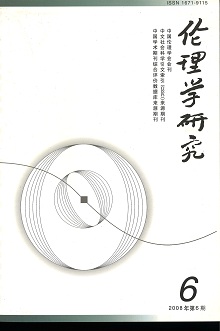|
|
A Look into the Thirty Years' Moral Construction of China
WANG Wei, CAI Xiao-ping
2008(6):
31-35.
In the past thirty years, the logical starting point of the Chinese Morality Construction is about the scientifically positioning of morality construction. It should be the booster to promote the socialist modernization with Chinese characteristics, to advance the comprehensive reform and opening-up, and to adapt to the primary stage of socialism, which are decided by the strategic position of socialist morality building. Under the guidance of Deng Xiaoping's Moral Rule Thinking, there are four strategic innovations in our moral construction. First, bringing up the "rule of virtue" strategy. Second, carrying out the Platform for Improving Civic Morality. Third, establishing the Socialist Concept of Honor. Forth, integrating the moral construction into the Socialist Core Value System. In 2008, we won a major victory for earthquake relief, successfully hosted the 29th Olympic Games in Beijing , formed the "spirit of the earthquake relief" and "the Olympic spirit", these two spirits are the latest results of the 30 years' building of socialist ethics.
|



